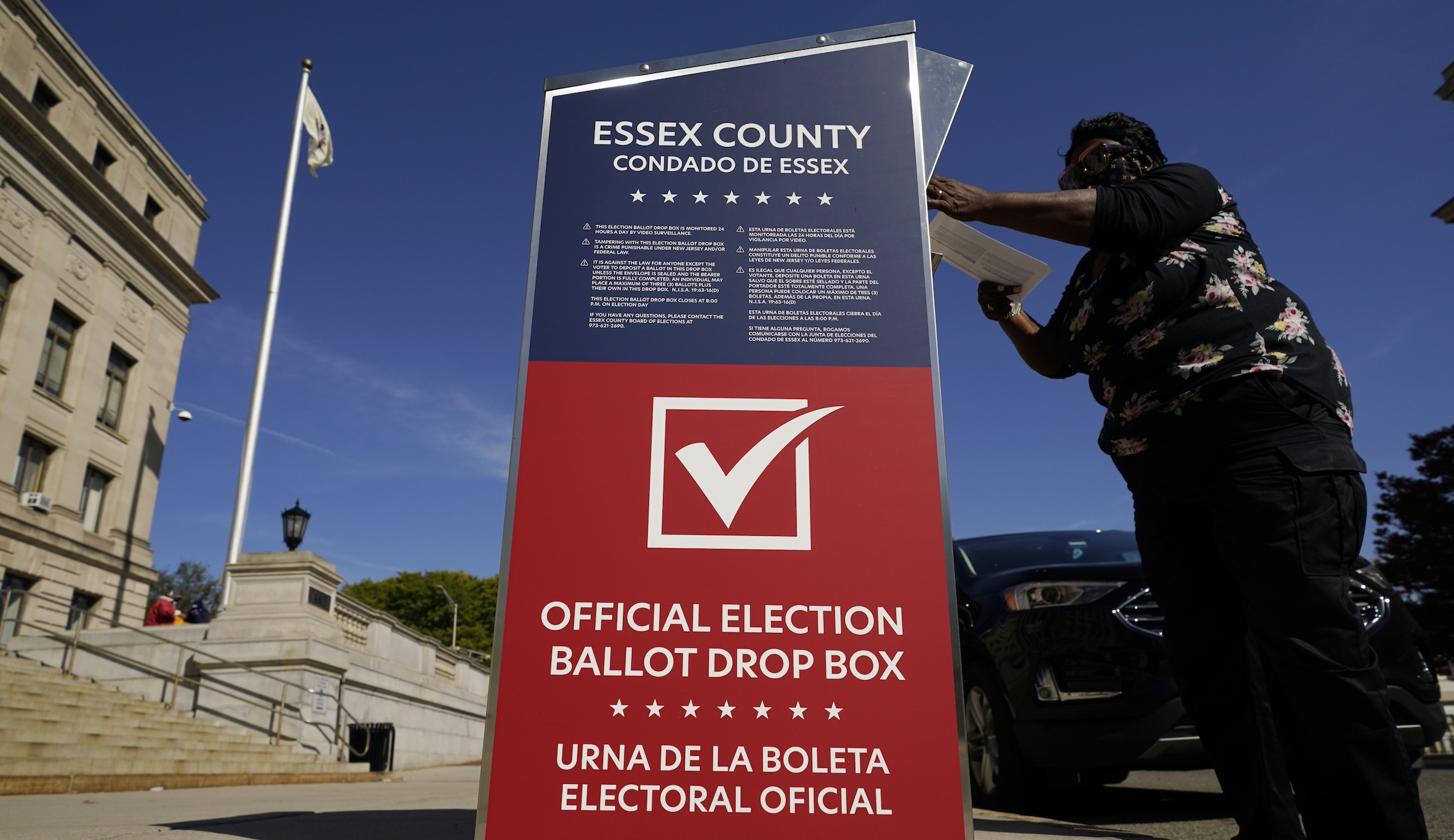

New Jersey’s unique ballots have come under scrutiny for decades for claims of voter suppression and manipulation. Now a high-profile lawsuit and a surprisingly competitive Senate race have thrown the state’s ballot into the public eye.
Nineteen of New Jersey’s 21 counties use the “county-line” ballot system. The county line places party-backed candidates in one row or column with other candidates placed somewhere else on the ballot in what is sometimes called “ballot Siberia.” Studies confirm that candidates in the county line are more likely to be elected.
Patricia Campos-Medina, a Democrat running against Rep. Andy Kim (D-NJ) and New Jersey’s first lady Tammy Murphy to unseat Sen. Bob Menendez (D-NJ), has fought against the county line for the majority of her political career in New Jersey.
“New Jersey is designed to manipulate voters, to confuse, to think that those who are on the line are the real Democrats or are the real Republicans, everybody else is somebody you can’t trust,” Campos-Medina told the Washington Examiner.
The county line was brought into the spotlight last month when Kim filed a lawsuit against 19 county clerks for the county line system.
“We have a system in New Jersey that allows a few party elites to weaponize the ballot for their own purposes,” Kim told the Washington Examiner. “We filed this emergency injunction because voters deserve to have a fair ballot where they can make their own decisions and not have others telling them who to vote for.”
A history of the line
The county line traces back to a time when political machines and mob bosses ran the Garden State.
According to a Rutgers University Law Review 2020 report, the state originally adopted direct primary elections in the early 1990s to guard against “party bosses and political machines exercising unfettered control over the process.” Those safeguards unraveled over a few decades as party bosses regained control over the electoral system, county by county.
“The legislature’s ability to regulate political party organizations became severely limited, and the parties were able to regain control and unprecedented power,” the report read.
There is nothing in New Jersey’s constitution or any law that requires the use of the line. It is simply a choice made each election cycle by county officials about how to structure their ballots.
Despite New Jersey’s Democratic lean in statewide races, the county line affects candidates of both parties, hurting or helping them gain office.
The Good Governance Coalition of New Jersey, a nonpartisan grassroots organization, is working across the state to bring greater transparency and accountability to state and local governments.
“You see people overvoting and undervoting and making all kinds of errors, and they’re not stupid people,” Yael Niv, the president of GGCNJ, told the Washington Examiner. “The ballot is leading them to make these errors. That’s a government document that should make it easy for someone to use it, not hard to use it.”
“Most New Jersey voters don’t even realize that by the time a candidate gets to be on the ballot that the party has pre-selected who those candidates are,” Campos-Medina said. “Because you have to engage in this internal process by each county in New Jersey, which is different, each county is not the same process.”
The movement to ‘abolish the county line’
In recent years, there has been a push to “abolish the county line” in order to increase transparency in the state’s election process and allow for new politicians to have a chance at being elected. Studies show that candidates who are on the line are more likely to be elected to office than those who aren’t.
“Political candidates who fail to secure the endorsement of these party bosses and political machines have virtually no chance of winning an election,” the Rutgers report read.
In 2021, multiple organizations filed a lawsuit against several county clerks for using the county line, claiming the line violates the U.S. Constitution.
“This antiquated practice is truly indefensible,” Sue Altman, the state director of the New Jersey Working Families Party, one of the plaintiffs in this lawsuit, said.
Three years later, using the same legal team from the previous lawsuit, Kim brought the topic into the national spotlight in his motion to sue 19 county clerks in New Jersey for their use of the county line.
“The broken politics in New Jersey needs to end once and for all,” Kim said. Despite leading in the polls against the first lady, Murphy is favored to win the county line in the most populous counties in New Jersey, placing him at a disadvantage ahead of the state’s June 4 primary.
Murphy disagreed with the timing of her opponent’s lawsuit, saying the rules should not be changed during campaign season.
“If there are improvements to be made,” Murphy said, “then let’s have the improvements. But right now, we are in the middle of a campaign, and let’s just move forward with the ground rules as we have them.”
“This is the way that the Democratic Party and the Republican Party have chosen to conduct their business. It’s not by law. It’s an internal process, and that’s why we keep saying they can change the process themselves,” Campos-Medina said.
In 2020, Hudson County, the most densely populated New Jersey county, did change the process by removing the line ahead of the statewide primary over fears Sen. Bernie Sanders (I-VT) would gain the endorsement over now-President Joe Biden, according to Campos-Medina.
“During the 2020 presidential campaign, when I was Bernie Sanders’s co-chair in New Jersey, we were ahead in the polls for Bernie Sanders,” Campos-Medina said. She said a resolution was passed to not have a line that year. She added, “They were afraid that Bernie was going to win and … defeat the Biden candidates.”
CLICK HERE TO READ MORE FROM THE WASHINGTON EXAMINER
“So they made a big fuss over us and made a decision, a resolution to not have a line in Hudson County. By the time the primary got to New Jersey, Bernie Sanders had already dropped,” Campos-Medina said. She noted the move was “irrelevant” by that time.
Hudson County Democrats and the Murphy campaign did not respond to the Washington Examiner’s request for comment.







